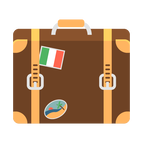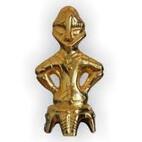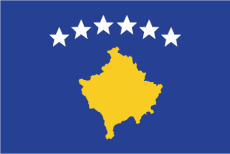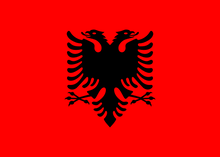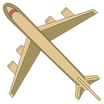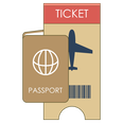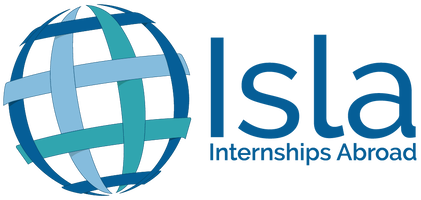Packed into a relatively small place, Kosovo has breathtakingly beautiful mountain peaks, waterfalls and wildflower meadows, fascinating cultural treasures, Ottoman-era buildings, stone houses, churches, mosques and medieval fresco paintings. There are rivers for fishing, lakes for swimming and fabulous walking and mountain biking trails.*
Stay Tuned for New Internship + Study Summer and Semester Programs 2024
Combine an Isla global development internship with a study program in Kosovo and earn academic credits
towards your undergraduate or graduate degree!
Combine an Isla global development internship with a study program in Kosovo and earn academic credits
towards your undergraduate or graduate degree!
Tailored Global Development Internships in Kosovo
Click on the following steps to learn how it works....
1. Explore and discover the Options
Research international internship options by first checking out one or more of the following:
Whatever you choose, we will customize an internship just for you! This means we will help you find an internship with one of partner organizations that is a good fit for your particular skill set, background, and interests and also meets the needs of your host organization!
If you are undecided and need more help, no problem! You can still apply! We are available via email at [email protected] or we can get on a Google Meet call with you to guide you through the options and the application and placement process.
- Discover our Isla Destinations
- Browse through our Search Internships listing
- Search internships by clicking on a specific Sector or Career Field
Whatever you choose, we will customize an internship just for you! This means we will help you find an internship with one of partner organizations that is a good fit for your particular skill set, background, and interests and also meets the needs of your host organization!
If you are undecided and need more help, no problem! You can still apply! We are available via email at [email protected] or we can get on a Google Meet call with you to guide you through the options and the application and placement process.
Sectors
Career Fields
2. the online application
- Once you have decided on your destination and internship choice(s), complete the online application and submit the $80 application fee. Send us your university transcripts, your resume (CV), and two letters of reference. Please note that you can save your application and go back to it at any time. It's easy!
- Upon receipt of your application and fee, Isla will give you a call for an interview. We want to learn more about you to ensure the best fit internship placement just for you.
3. The Internship Placement
- An invitation to join Isla will be sent to you with your internship offer. We will also send you your Scope of Work and an internship contract.
- Pre-departure preparations begin with lots of guidance from the Isla team.
- Learn about Isla internship program fees here.
- Paying for your internship? Your university or college most likely offers scholarships and grants specifically to help defray the cost of an international experience, including internships abroad. If you're a student, contact your university's international or education abroad office. They will also help you with the numerous national scholarship programs, such as the Gilman, that offers funding for internship programs like ours. Combining funding sources can make your internship abroad doable and very affordable. Another option is crowdfunding. To learn more go to our Funding Your Internship page.
4. The Isla experience
Gain valuable international work experience, life skills, new friends and colleagues, cultural awareness and sensitivity, and the confidence to help you develop personally and professionally. Isla will provide guidance every step of the way before, during, and after your internship experience! Apply now!
Kosovo Travel Lonely Planet Kosovo
Rough Guides Kosovo Bradt Travel Guide Kosovo National Geographic Kosovo Prishtina Capital of Kosovo Vertical Divider
|
About Kosovo & HealthEmbassies in Kosovo
U.S. Embassy in Kosovo U.S. State Department of Kosovo British Embassy of Kosovo World Health Organization Center for Disease Control Vertical Divider
|
News and Blogs |
The Languages and Books of Kosovo
While the two official languages are Albanian and Serbian, there are several other languages spoken in Kosovo:
DIVERSITY IN KOSOVO
Although Kosovo is a small state, it is known to be very diverse given its population, culture, and languages. For centuries, several ethnic groups lived together in Kosovo and shared common values. Since Albanians make up the majority of Kosovo's population, they have had significant influence on other communities. In addition to being the most common first language in Kosovo, Albanian is spoken as a second language by almost the entire population. Although Kosovo has no official religion, Islam is most widely practiced. (from the World Atlas)
ALBANIAN LANGUAGE - 94.5% OF KOSOVO'S POPULATION SPEAK ALBANIAN
94.5% of Kosovo's population are ethnic Albanians whose first language is Albanian. Albanian is also one of Kosovo's official languages, along with Serbian. The majority of Kosovars speak the Gheg dialect, one of the two Albanian dialects, while the majority of the population of Albania speak the Tosk dialect.
SERBIAN LANGUAGE - 1.6% OF THE POPULATION SPEAK SERBIAN
While Serbian is one of the official languages in Kosovo, it is the third most commonly spoken language in Kosovo according to the latest census with approximately 1.6% of the population speaking Serbian. However, Serbian is considered the de facto second most common language. Serbian is the only European language that uses both Latin and Cyrillic alphabets.
BOSNIAN LANGUAGE - 1.7 OF POPULATION, BOSNIAN IS THE 2ND MOST WIDELY SPOKEN LANGUAGE
Bosnian, a form of the Serbo-Croatian language, is currently the second most commonly spoken language in Kosovo with 1.7% of the population of Kosovo spoken primarilty by Bozniaks. Bosnian is recognized as a minority language in Kosovo, Serbia and Montenegro. While the language uses both the Latin and Cyrillic alphabets, Latin is used everyday use and, also has borrowed from Persian, Ottoman Turkish, and Arabic languages.
TURKISH LANGUAGE - 1.1% OR 20,000 PEOPLE SPEAK THIS MINORITY LANGUAGE
The Turkish language is spoken by about 20,000 Turkish people in Kosovo, 1.1% of the population, and is recognized as one of the state's minority languages. Most Turkish speakers in Kosovo live in the Prizren District. The Turkish language belongs to the Turkic group of languages.
ROMANI LANGUAGE - 0.03% SPEAK ROMANI
Other minority languages spoken in Kosovo include Romani. There are 36,694 Romani, Ashkali and Balkan Egyptians living in Kosovo, or around 2% of the population.
GORANI AND OTHER UNSPECIFIED LANGUAGES - 0.7%
The Gorani (also Goranski) or Našinski (literally meaning "our language") language, is an Indo-European language of the variety of South Slavic spoken by the Gorani people in the border area between Kosovo, Albania, and North Macedonia. English and German are second languages widely spoken in Kosovo.
THE FLAG
The Kosovo flag is blue with a gold map of Kosovo and six white stars that represent one of the major ethnic groups of Kosovo: Albanians, Serbs, Turks, Gorani, Roma, and Bosniaks. As the Kosovars identify as ethnic Albanians, you will find the Albanian flag hung in public places in addition to the blue Kosovo flag. In addition, in Serbian enclaves, such as the city of North Mitrovitca, the Serbian flag is visible in the streets.
Flight InformationPrishtina International Airport serves flights from numerous Western European countries and Turkey. Whether you are flying an American or European airline, you will most likely have a stopover en route in a major European city. Flights from the U.S. generally are on United or Delta and their partner airlines, such as with Lufthansa via Frankfurt or Munich; Austria Airlines via Vienna, or Swiss Air via Zurich. Eurowings, Edelweiss, and Wizz Air, connects passengers from various European hubs into Pristina. Turkish Airlines from the U.S. connects to Pristina via Istanbul.
It is recommended that you choose a flight with the short and most comfortable layover and which will give you enough time to connect to your flight to Pristina. The presence of budget carriers like Wiz Air, Pegasus, Easy Jet and Air Berlin makes it easy to find inexpensive alternative flights in and out of Pristina. Currently, there are low-cost fares from Pristina to Budapest, London, Paris, and Berlin. Vertical Divider
|
Visas and STEPAll visitors to Kosovo, including U.S. citizens, need a valid passport to enter Kosovo and may be asked to provide documentation stating the purpose of their visit.
The U.S. Department of State’s Smart Traveler Enrollment Program (STEP) U.S. Embassy strongly recommends that U.S. citizens traveling to or residing in Kosovo enroll in the STEP program. STEP sends security email updates and makes it easier for the U.S. embassy or nearest U.S. consulate to contact you in an emergency.
|
Vertical Divider
* from the Bradt Travel Guide to Kosovo
